Politics
/ArcaMax

Trump looks to label antifa as a foreign terrorist organization
WASHINGTON — President Donald Trump instructed members of his Cabinet to move to declare antifa a foreign terrorist organization at an event that highlighted his efforts to crack down on the loose collective of far left-wing groups.
“I think it’s the kind of thing I’d like to do,” Trump said Wednesday at the White House in response to...Read more
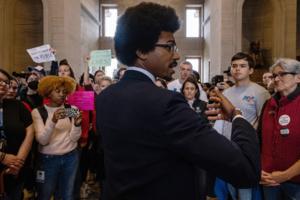
Justin Pearson of the 'Tennessee Three' challenging Rep. Steve Cohen in primary
WASHINGTON — Tennessee state Rep. Justin Pearson, who rose to national prominence after his expulsion from the state House over a gun control protest launched a bid for Congress on Wednesday, challenging longtime Democratic Rep. Steve Cohen.
Pearson’s announcement is part of a larger trend of younger Democrats around the nation challenging ...Read more

Democrats seize on conservative support as hope to end shutdown
WASHINGTON — As the government shutdown entered its second week, Democratic lawmakers insisted the tide is shifting toward a deal as some hard-line Republicans express support for extending health insurance subsidies, despite blanket opposition from Republican leadership to any agreement in advance of reopening the government.
Ending the ...Read more
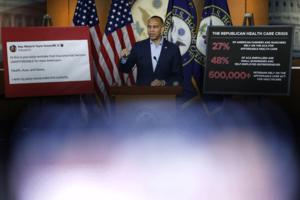
Hakeem Jeffries, Mike Lawler erupt into shouting match over government shutdown
New York Congressmen Hakeem Jeffries and Mike Lawler got into a shouting match Wednesday during a testy exchange over the ongoing government shutdown.
Lawler, a Republican, confronted the House minority leader after a news conference about Affordable Care Act subsidies, a sticking point in negotiations between the two sides.
Lawler asked ...Read more
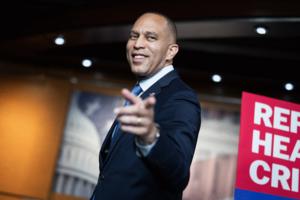
With Republicans out of town, House Democrats are everywhere and nowhere
WASHINGTON — It was noon on Wednesday and the House side of the Capitol was almost deserted. Save for the remaining staff and journalists roaming the halls, it was a shell of its typical self in the middle of what was supposed to be a congressional work week.
But here and there, scattered groups of House Democrats wandered around, drawing ...Read more

Trump to undergo physical exam Friday as health questions linger
WASHINGTON — President Donald Trump will undergo a physical exam on Friday following mounting questions about his health prompted by noticeable bruising and swelling in recent months.
“On Friday morning, President Trump will visit Walter Reed Medical Center for a planned meeting and remarks with the troops. While there, President Trump will...Read more

Trump says Chicago mayor, Illinois governor should be jailed amid militarized campaign
WASHINGTON — Chicago is emerging as the latest testing ground for President Trump’s domestic deployment of military force as hundreds of National Guard troops were expected to descend on the city.
The president said Wednesday that Illinois Gov. JB Pritzker and Chicago Mayor Brandon Johnson should be jailed for failing to support federal ...Read more
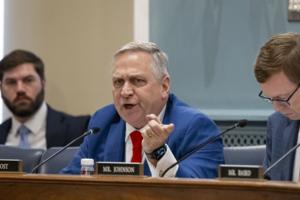
US Supreme Court hears arguments in GOP Illinois congressman's mail-in ballots suit
An attorney for veteran downstate Republican U.S. Rep. Mike Bost told the U.S. Supreme Court on Wednesday that Illinois’ post-election mail-in ballot-counting law created the potential for reputational and financial harm to the congressman and he should be allowed to sue to try to overturn it.
But a lawyer for the state of Illinois argued ...Read more

Tony Lazzaro, Minnesota GOP donor likened to Jeffrey Epstein, loses at Supreme Court
The U.S. Supreme Court has rejected the appeal of Anton “Tony” Lazzaro, the formerly well-connected Republican donor convicted of giving teenage girls gifts, alcohol and money in exchange for sex.
On Monday, the high court turned away Lazzaro with no comment. In February, the 8th U.S. Circuit Court of Appeals also denied his appeal.
In ...Read more
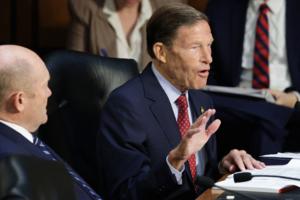
Trump targets Sen. Blumenthal, calling for investigation into Vietnam service claims
President Donald Trump is targeting U.S. Sen. Richard Blumenthal again after Connecticut’s senior U.S. senator grilled U.S. Attorney General Pam Bondi on Tuesday during a Senate Judiciary Committee oversight hearing.
Trump called for an investigation in a Truth Social post into long-discussed allegations that Blumenthal lied about his ...Read more

Trump sends California National Guard to Illinois as White House seeks to extend control
SACRAMENTO, Calif. — California is challenging President Donald Trump's grip on the state's National Guard, telling a federal court the White House used claims of unrest in Los Angeles as a pretext for a deployment that has since expanded nationwide — including now sending troops to Illinois.
The Trump administration deployed 14 soldiers ...Read more
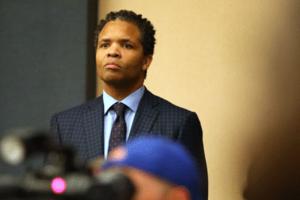
Former Rep. Jesse Jackson Jr. announces comeback bid in Illinois
WASHINGTON — Former Illinois Rep. Jesse L. Jackson Jr., who pleaded guilty to misusing campaign funds and served time in federal prison, announced a comeback bid Wednesday, entering the Democratic primary for the 2nd District.
He joins a crowded field seeking the seat being vacated by Rep. Robin Kelly, his successor in Congress who is running...Read more

Trump to speak at Miami event near presidential library site next month
MIAMI — President Donald Trump will speak at an event at the Kaseya Center next month, event organizers announced Wednesday, placing the president directly across the street from his planned high-rise presidential library.
It’s the first time the conference, called the America Business Forum, is taking place in the United States. The event ...Read more
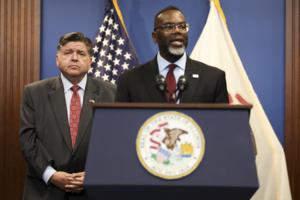
Trump calls for Chicago Mayor Brandon Johnson and Illinois Gov. JB Pritzker to be jailed
CHICAGO — President Donald Trump called for Illinois Gov. JB Pritzker and Chicago Mayor Brandon Johnson to be jailed Wednesday, a dramatic rhetorical escalation as he tries to flood the city with federal agents and National Guard troops against the wishes of the local elected officials.
“Chicago Mayor should be in jail for failing to ...Read more

Marc Veasey, Texas Democrat drawn out of his district, will seek reelection
FORT WORTH, Texas — U.S. Rep. Marc Veasey says he is running for reelection after he was drawn out of his congressional district. The Democrat from Fort Worth has represented Congressional District 33 since 2013.
Whether he will run for that North Texas district or Congressional District 30, currently held by Rep. Jasmine Crockett, a Dallas ...Read more
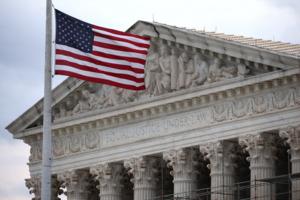
Supreme Court sounds ready to revive lawsuit over ballot counting
WASHINGTON — The Supreme Court appeared ready during oral arguments Wednesday to allow a challenge led by a Republican member of Congress to Illinois’ counting of ballots up to 14 days after Election Day.
Rep. Mike Bost of Illinois and Republican presidential electors want the justices to revive their case, an outcome that experts say could...Read more
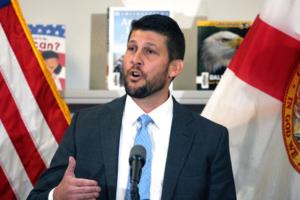
Trump endorsement in Florida attorney general race changes GOP primary outlook
TALLAHASSEE, Fla. — President Donald Trump on Wednesday endorsed Florida Attorney General James Uthmeier’s campaign to keep his seat in 2026, effectively ending chatter among the political class about the race being a proxy war between the president and Gov. Ron DeSantis.
The president’s team had been wooing House Speaker Daniel Perez, a ...Read more
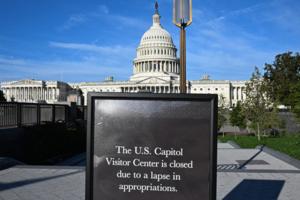
Government shutdown: hellish hold times and dead-end emails
Rebecca Ferguson just wanted to be done with the government, but it seems nothing is easy during a federal shutdown. Not even obtaining the termination papers needed to finalize her departure from the U.S. Department of Health and Human Services.
The mother of three couldn’t reach a human on Tuesday when she called the Office of Personnel ...Read more

Maryland US rep. to donate pay amid shutdown, as Trump questions backpay for furloughed workers
WASHINGTON — As federal employees prepare to miss their next paycheck, several lawmakers have volunteered to join them. Rep. April McClain Delaney will go a step further.
“The Congresswoman will be donating her pay during the shutdown to nonprofits within the 6th District that address food insecurity for families impacted by cuts to SNAP ...Read more

Lawsuit accuses Miami Dade College of violating Sunshine Law on Trump library
MIAMI — A new lawsuit aims to overturn Miami Dade College’s decision to deed over property adjacent to the Freedom Tower to the state, even though the governor and Florida Cabinet have already voted to gift the land to Donald Trump’s presidential library foundation to build a high rise.
In a complaint filed this week in Miami circuit ...Read more
Popular Stories
- Trump eyes health care talks with Democrats to end shutdown
- Trump's fixation on loyalty is bad for nation
- Closed, canceled and turned away: Shutdown leaves tourists in limbo
- The American Experiment requires robust debate, not government crackdowns
- Democratic candidate asks court to order Florida Gov. Ron DeSantis to set special election in Palm Beach County






















































